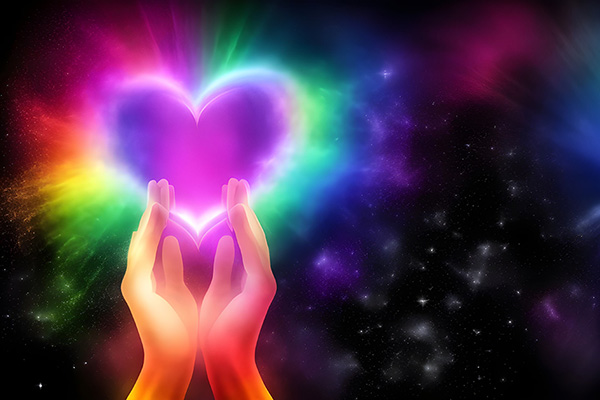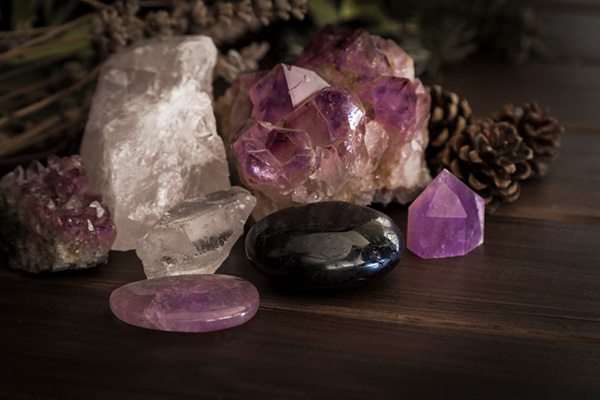highly sensitive person
How To Thrive As An Empath
 Empaths have the unique ability to deeply experience and understand the emotions of others. While this gift is a wonderful source of compassion, strength, and connection, it also comes with its share of challenges.
Empaths have the unique ability to deeply experience and understand the emotions of others. While this gift is a wonderful source of compassion, strength, and connection, it also comes with its share of challenges.
Living as an empath can be a double-edged sword, as the heightened sensitivity to the emotions of others can lead to emotional exhaustion, boundary issues, and a constant struggle to maintain one’s emotional well-being.
One of the biggest challenges empaths face is emotional overload. Empaths tend to absorb the emotions of those around them, whether it’s joy, excitement, sadness, anger, depression, or fear.
This emotional absorption can be so intense that it can become overwhelming to the empath, leading to feelings of confusion, restlessness, anxiety, emotional exhaustion, and even physical symptoms such as headaches and fatigue.
Managing this constant influx of emotional energy can be mentally and physically exhausting, sometimes leaving empaths completely drained and in dire need of some solitude and self-care.
The Empowered Empath
 People are naturally drawn to empaths. They tend to open up and pour their souls out to the empath, instinctively knowing that their secrets are safe and that there will be no judgment or condemnation. This is great, unless you are the empath who is constantly feeling burned out and exhausted from the burden of keeping everyone around you happy, with no one to talk to yourself.
People are naturally drawn to empaths. They tend to open up and pour their souls out to the empath, instinctively knowing that their secrets are safe and that there will be no judgment or condemnation. This is great, unless you are the empath who is constantly feeling burned out and exhausted from the burden of keeping everyone around you happy, with no one to talk to yourself.
I’ve been doing readings on PsychicAccess.com for more than a decade now, and in that time I’ve had the privilege of reading for many people who are born empaths but were unaware of their innate gifts and abilities. They have since grown exponentially in their awareness and have learned to trust what is at the core of their being.
Not only have they become aware of what makes them so different, they realize that they are not ‘crazy’ or ‘too sensitive’ or ‘imagining it.’ They have been told such things all their lives, but now they can trust their very keen intuition and know that they are usually right on the money.
The moment empaths embrace their true, gifted nature, the gut-wrenching anxiety, tension headaches, and other health problems begin to subside. Their confidence soars. It is wonderful to observe this newfound self-empowerment.
But the openness and courage required to do this kind of soul searching is not easy. It takes determination, and it’s not for the faint of heart. Not to mention the difficulty of cultivating the patience required to learn where and when to say what you feel and know. Sensing the outcome of events or relationships, or more importantly, knowing that something is going on with someone before they know it, can be very challenging.
Setting Healthy Boundaries With Toxic People
 I have often wondered why so many of us tolerate unhealthy, unhappy, and sometimes very dysfunctional relationships with relatives and friends. Too many of us endure the toxic dynamics in our families and friendships, putting up with being the scapegoat, emotional punching bag, financial provider, free therapist, or nanny.
I have often wondered why so many of us tolerate unhealthy, unhappy, and sometimes very dysfunctional relationships with relatives and friends. Too many of us endure the toxic dynamics in our families and friendships, putting up with being the scapegoat, emotional punching bag, financial provider, free therapist, or nanny.
Why is it that many of us tend to keep giving the people in our lives second chances and multiple opportunities to learn and grow, hoping that they will somehow become more considerate, loving, and compassionate?
Meanwhile, we ignore their nasty words, spiteful behaviors, and toxic exchanges. We remain kind, tolerant, and patient. We try to help them lighten up, or connect on a deeper, more caring level. We hope that maybe someday everyone will be happier together and enjoy sharing more love and belonging, instead of dysfunction and drama.
But as the years go by, they continue to disappoint, abuse, and betray us. The loving kindness and mutual support never comes. Try as we might in these toxic situations, the people we love and care about will continue to talk down to us or try to make us feel that we are not good enough. These complicated family and friendship situations can eventually cost us our physical and mental health, our financial security, and our personal accomplishments.
I find this to often be the case with my clients who are gifted, empathic, highly sensitive, and spiritually aware. Some even consider it their purpose or calling in this lifetime. However, while being a wounded healer or earth angel is certainly a noble calling, being a scapegoat or doormat is definitely not! God, Source, Spirit, the Divine wants us to be happy, healthy and safe, and to live our best life.
Empaths And Endings
 Anger is one of the most difficult emotions for the empath to navigate, and the ending of a relationship is definitely one of the most challenging of all.
Anger is one of the most difficult emotions for the empath to navigate, and the ending of a relationship is definitely one of the most challenging of all.
Any relationship that falls apart is tough, but if you are an empath you may well find yourself trying to navigate some very overwhelming waters. Not only will you be feeling your own pain, anger and confusion, but you will also sense your partner’s feelings, and possibly even that of your families and mutual friends.
Trying to make sense of all these emotional energies, staying centered and sorting out your own feelings separate from your partner’s is a very tall order.
Chances are you have also been sensing that something had been radically amiss for some time, before your love finally went on the rocks. It is important to take time to look back and remember when you first sensed something was off. Empaths are often aware of their partner’s moods and feelings, and may act on it too prematurely. Pushing too soon can result in the partner shutting down, or insisting that nothing is wrong. The problem is, however, that an empath will feel that something is wrong and will not be able to shake that feeling. You knew something was wrong… and you were right!
It is critical that you shift your focus away from your partner and towards taking care of yourself. Allow your emotions to flow. An empath is always going to be more focused on the other party’s actions, reactions and feelings. You automatically link in to them instead of you. To move through this painful experience you must shift your focus and concentrate on you.
The Ideal Starting Crystals For Beginners
 Crystals and gemstones are a popular resource in modern metaphysical practices, mysticism, and alternative spirituality. It can be used in various powerful ways, including healing, energy protection, meditation, prayer, manifesting, divination, psychic reading, and channeling.
Crystals and gemstones are a popular resource in modern metaphysical practices, mysticism, and alternative spirituality. It can be used in various powerful ways, including healing, energy protection, meditation, prayer, manifesting, divination, psychic reading, and channeling.
Crystals are versatile and useful in enhancing one’s spiritual practice or energy work, but there are so many to choose from that it can difficult to know where to start.
Three of my favorite crystals that I recommend for beginners to get started with are amethyst, rose quartz and black tourmaline. These three crystals are affordable and easy to find, so they are ideal to start with if you wish to explore using crystals to expand your spiritual practice.
Amethyst
Amethyst is the ideal stone to start with because it has a gentle energy that almost anyone can tolerate without being overwhelmed by its influence. It is a fantastic stone to help you get in touch with your intuition and find your calm center. Amethyst’s calming energy especially enhances meditation and dreamwork.
Amethyst is associated with the crown chakra. It heightens our spiritual and personal awareness, which in turn helps us to self-reflect and evaluate more honestly where we need to make adjustments in our beliefs, behavior, and perspectives. Amethyst thus supports us in maintaining clarity in our self-reflection, which is a vital first step in a spiritual journey of higher consciousness and personal enlightenment.
Anger Release Empowers The Empath
 As an empath, I’ve been personally and professionally targeted by others many times in my life. But I am not the only one. These challenges are common among the highly sensitive. Why do sensitives tend to experience so much bullying? I believe we tend to attract it because we are called to support others in balancing their emotions. We are meant to use our gift of empathy to help heal others.
As an empath, I’ve been personally and professionally targeted by others many times in my life. But I am not the only one. These challenges are common among the highly sensitive. Why do sensitives tend to experience so much bullying? I believe we tend to attract it because we are called to support others in balancing their emotions. We are meant to use our gift of empathy to help heal others.
But at times the empath becomes overwhelmed. She is only human and sometimes also needs to vent. Most of all the empath must learn to release anger and other negative emotion she may experience as a result of the injustice, callousness and even cruelty she often tends to suffer.
Unresolved anger is one of the underlying causes for many addictions and dysfunctional behaviors. Anger that leads to a sense of entitlement, and from entitlement comes dissolved hopes and dreams.
If we learn to surrender our egos and release entitlement, then we find the hopes and dreams we’ve lost return to us. Peace is the ultimate foundation of prosperity and well-being. Having peaceful thoughts and kind intentions for everyone invites abundance into our lives.
This doesn’t mean we have to be a ‘doormat’ for others. If we are truly at peace, our higher vibration commands a natural boundary and the Universe fills in the energetic gaps.
For example, while dealing with a difficult person, someone else may come along to interrupt the conversation with some humor. The Universal Spirit naturally intercedes on our behalf once we set good intentions for everyone by releasing our anger and resentment.
Spiritual Self-Care For Clairsentients
 We all have access to the four channels of psychic energy and intuition. These include clairvoyance (clear vision), claircognizance (clear thinking), clairaudience (clear hearing) and clairsentience (clear feeling). While everyone has access to each of these channels of inner guidance, one or more of these tend to be stronger for every individual.
We all have access to the four channels of psychic energy and intuition. These include clairvoyance (clear vision), claircognizance (clear thinking), clairaudience (clear hearing) and clairsentience (clear feeling). While everyone has access to each of these channels of inner guidance, one or more of these tend to be stronger for every individual.
Clairsentience is the pathway for receiving divine guidance and spiritual information through feelings and physical sensations. You are probably clairsentient if you often saying, “I feel” or “I sense.” For example, you may say, “I feel it would be a good idea,” or “I sense a bad vibe in this place,” or “I just don’t have a good feeling about that person.”
You may also experience clairsentience as ‘tingles’ on your skin or the back of your neck when your Angels or Guides are near or sending you a message. You probably also get ‘gut feelings’ or ‘hunches’ about things and typically experience the sensations in your solar plexus area.
Some clairsentients also pick up strongly on people and animals’ feelings and emotions. This is an aspect of clairsentience known as being an empath or a sensitive.
No matter how one uniquely experiences clairsentience, it is vital to practice good spiritual self-care. Clairsentients are especially vulnerable to energy influences and can easily get sucked into drama, addiction, and co-dependency – all of which negatively affect your psychic abilities and distract you from your true path.